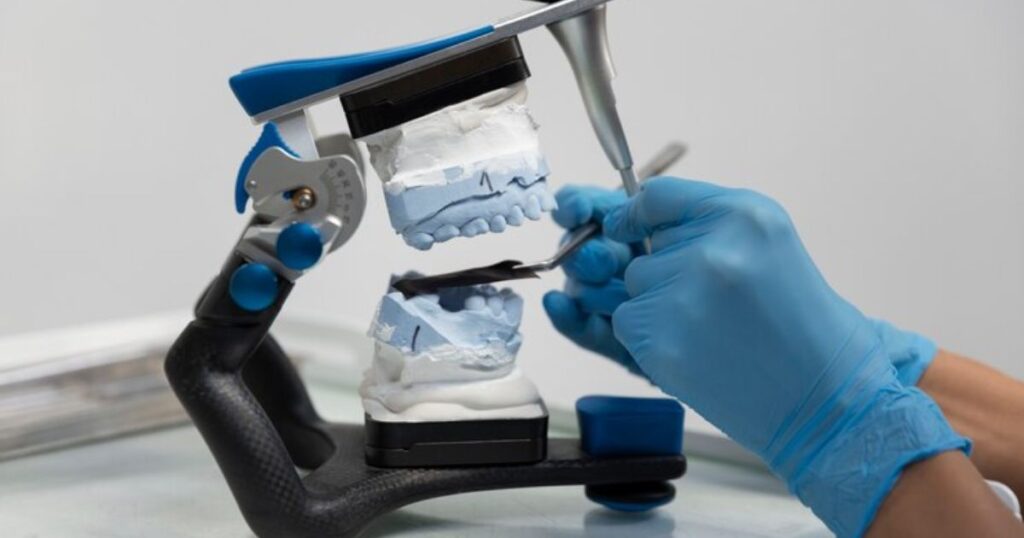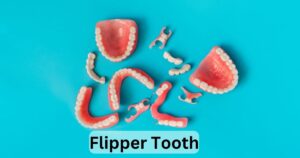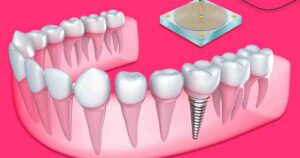Denture teeth, while designed to replicate natural teeth, sometimes require adjustments to ensure optimal fit, comfort, and functionality. The question of whether denture teeth can be shortened is commonly raised by individuals seeking improved comfort or better alignment. Shortening denture teeth is indeed a viable solution often employed by dental professionals to address various concerns.
Whether due to a misaligned bite, discomfort while speaking or eating, or aesthetic preferences, the process of adjusting denture tooth length can significantly enhance the overall fit and function of the dentures. This procedure involves precise modifications to the length of the artificial teeth, considering factors like facial structure, bite alignment, and the patient’s comfort.
However, such alterations should always be approached with careful consideration and expertise to ensure the dentures maintain their functionality and aesthetic appeal. Professional assessment and guidance are essential to determine the feasibility and appropriateness of shortening denture teeth, ensuring the patient achieves both comfort and functionality in their dental prosthesis.
Understanding Denture Tooth Length

Understanding the length of denture teeth is crucial in achieving optimal function and aesthetics in dental prosthetics. The length of denture teeth plays a pivotal role in the overall appearance, bite alignment, and functionality of the dentures.
When it comes to replicating natural teeth, the length of denture teeth is carefully considered to ensure they harmonize with facial features, support proper speech, and facilitate effective chewing. The ideal length of these artificial teeth is determined by various factors, including the patient’s facial structure, jaw alignment, and individual preferences.
In some instances, adjusting the length of denture teeth may be necessary to enhance comfort, improve functionality, or achieve a more natural appearance. Dental professionals possess the expertise to evaluate whether shortening denture teeth aligns with the patient’s needs without compromising the denture’s integrity.
Whether it involves shortening or maintaining original tooth length, understanding the significance of denture tooth length aids in creating personalized and functional dental prosthetics tailored to the individual’s unique requirements and comfort.
Shortening Denture Teeth: Feasibility and Process

Shortening denture teeth involves a meticulous process that aims to improve the fit, comfort, and functionality of dental prosthetics. Here’s an overview presented in points:
Feasibility Assessment
Feasibility assessment for shortening denture teeth involves a thorough evaluation by a dental professional. This assessment considers crucial factors such as the denture’s material, structural integrity, and the specific needs of the patient. By meticulously examining these elements, dentists determine the viability of modifying the denture teeth.
This initial stage is pivotal in establishing whether adjustments can be made without compromising the denture’s functionality or aesthetic appeal, ensuring a tailored approach to meet the patient’s requirements.
Consultation and Planning
Consultation and planning in denture tooth adjustments are pivotal stages that ensure successful modifications. During consultations, dentists assess the wearer’s needs, examine denture structure, and discuss desired changes. This phase involves meticulous planning, considering factors like denture material, oral health, and functional aspects.
Dentists collaborate with patients, explaining the process, potential outcomes, and any associated risks. Clear communication and comprehensive planning in this phase set the foundation for precise alterations, ensuring improved comfort, functionality, and satisfaction with the modified denture teeth.
Precision in Adjustment
Precision in adjustment within dentures is paramount for optimal functionality and comfort. Even minor alterations in tooth length or alignment can significantly impact a wearer’s bite, speech, and overall satisfaction. Dentists utilize specialized tools and expertise to ensure meticulous adjustments without compromising the denture’s integrity.
Precision is crucial to maintain natural oral functions and prevent discomfort. Careful consideration of every modification ensures that the dentures seamlessly integrate into the wearer’s mouth, enhancing both form and function.
Testing and Refinement
Testing and refinement form the backbone of any successful development process. Through rigorous testing, flaws are uncovered, allowing for targeted improvements. This iterative cycle ensures that products or systems evolve toward perfection.
Refinement follows testing, where identified issues are addressed, enhancing functionality, reliability, and user satisfaction. This crucial phase allows for fine-tuning and adjustments, ensuring that the final output meets or exceeds expectations, ultimately delivering a superior end product or experience.
Patient Education and Care
Patient education and care are paramount in ensuring effective treatment outcomes. Educating patients about their conditions, treatment options, and preventive measures empowers them to make informed decisions and take an active role in their health journey. It involves clear communication, providing understandable information, and addressing concerns.
Additionally, comprehensive care involves not only treatment but also ongoing support, guidance, and follow-up to promote compliance and well-being. Patient education and care form the cornerstone of a collaborative and successful healthcare approach.
Follow-Up and Monitoring
Follow-up and monitoring are integral components of any process, ensuring continued success and identifying necessary adjustments. In various contexts like healthcare, projects, or professional services, follow-up involves tracking progress, addressing concerns, and evaluating outcomes.
Monitoring encompasses ongoing observation, data collection, and analysis to maintain quality standards or track changes. These practices facilitate proactive problem-solving, refining strategies, and adapting to evolving needs. Regular follow-up and monitoring contribute significantly to sustained effectiveness, fostering improvement and long-term success.
Shortening denture teeth is a specialized procedure requiring professional expertise to ensure that alterations enhance the denture’s functionality without compromising its structural integrity or aesthetic appeal.
Factors to Consider Before Shortening Denture Teeth

Before opting to shorten denture teeth, several crucial factors warrant consideration:
Professional Evaluation: Seek guidance from a dentist or prosthodontist to assess the denture’s current condition and suitability for modification.
Impact on Bite and Functionality: Understand how altering tooth length may affect your bite, chewing efficiency, and overall oral function.
Aesthetic Preferences: Discuss desired changes in tooth length, ensuring they align with your aesthetic expectations and facial structure.
Material Suitability: Consider the denture material; not all materials may be easily modified without compromising durability or appearance.
Potential Adjustments: Explore alternative solutions or adjustments to address discomfort or alignment issues before opting for tooth shortening.
Long-Term Implications: Understand the long-term effects of modifying denture teeth, including potential maintenance or future adjustments.
Professional Expertise: Ensure the modification is performed by a qualified dental professional to maintain denture integrity and functionality.
Methods and Techniques for Adjusting Denture Tooth Length

Various methods and techniques exist for adjusting denture tooth length, typically executed by dental professionals to ensure precision and safety. One common approach involves reshaping the teeth using specialized dental instruments. This process carefully trims or reshapes the teeth to achieve the desired length while maintaining proper alignment and functionality.
Another method utilizes dental composite materials to add or remove material from the teeth, allowing for precise alterations in length. Heat-based techniques, such as using a dental curing lamp, enable the reshaping of denture teeth through controlled heating and manipulation of the material.
Computer-aided design and manufacturing (CAD/CAM) technology have also emerged, offering precise digital adjustments to denture tooth length before physically altering the prosthetic. Each method involves specific expertise and considerations to ensure the final result meets the wearer’s needs while preserving the denture’s structural integrity and function.
Professional Guidance: Shortening Denture Teeth Safely
Seeking professional guidance is paramount when considering the safe shortening of denture teeth. Dentists or prosthodontists possess the expertise required to undertake this adjustment with precision and care. They begin by assessing the denture’s current state, evaluating the feasibility of altering tooth length without compromising its structural integrity.
Using specialized tools and techniques, these professionals meticulously modify the teeth, ensuring proper alignment and functionality. This process involves a thorough understanding of the individual’s oral anatomy and specific needs, allowing for tailored adjustments while prioritizing comfort and oral function.
Professional oversight not only ensures the safe shortening of denture teeth but also minimizes potential risks or complications, providing the wearer with a comfortable and functional dental prosthetic.
Impacts of Shortened Denture Teeth on Comfort and Function
Shortening denture teeth can significantly impact both the comfort and functionality of the dental prosthetic. Properly adjusted tooth length can enhance comfort by improving the denture’s fit within the oral cavity. When the teeth are shortened appropriately, it can reduce pressure points, potential irritation, and discomfort associated with an ill-fitting denture.
Moreover, adjustments in tooth length can positively affect functionality by optimizing the bite alignment and chewing efficiency. However, inadequate alterations may lead to difficulties in chewing or speaking, emphasizing the importance of precise adjustments performed by dental professionals. Properly shortened denture teeth contribute to improved comfort, better oral functionality, and an overall enhanced experience for the wearer.
Potential Challenges in Altering Denture Tooth Length
Certainly! When altering the length of denture teeth, several challenges may arise:
Aesthetics: Changing the length of denture teeth can impact the overall appearance. It’s crucial to ensure that the new length aligns with the patient’s facial structure and smile line for a natural look.
Functionality: Altered tooth length might affect the way the dentures bite together. Improper alignment could cause difficulties in chewing and speaking, leading to discomfort for the patient.
Occlusion: Adjusting tooth length can influence occlusion, the way upper and lower teeth fit together. Incorrect adjustments may result in bite problems or TMJ (temporomandibular joint) issues.
Patient Adaptation: Patients might need time to adjust to the new length. It could feel different in their mouth, affecting their comfort and speech initially.
Material Considerations: The material used for denture teeth might behave differently when altered. For instance, acrylic may have limitations in terms of how much it can be adjusted without compromising its strength.
Precision and Technique: Altering tooth length requires precision and expertise from the dental professional. Any errors in the process can lead to dissatisfaction and the need for further adjustments.
Patient Expectations: Communicating effectively with the patient about the potential outcomes and managing their expectations is crucial. It’s important to ensure they understand the changes and possible limitations beforehand.
Follow-Up Adjustments: Even after altering the tooth length, follow-up visits might be necessary to fine-tune the dentures based on how the patient adapts and any issues that arise.
These challenges highlight the importance of careful assessment, precise alterations, and clear communication between the dental professional and the patient when considering changes to denture tooth length.
Maintenance and Care After Shortening Denture Teeth
| Maintenance and Care After Shortening Denture Teeth |
| 1. Daily Cleaning |
| – Brush dentures with a soft-bristled brush and mild denture cleaner. Rinse thoroughly. |
| – Remove dentures overnight to allow gums to rest. |
| 2. Regular Inspections |
| – Check for any rough edges or discomfort; seek professional adjustment if needed. |
| – Ensure dentures fit snugly and comfortably; address any changes in fit promptly. |
| 3. Professional Check-ups |
| – Schedule regular visits to the dentist for denture assessments and maintenance. |
| – Have dentures professionally cleaned and examined periodically. |
| 4. Handling and Storage |
| – Handle dentures carefully to avoid damage; use a towel or water when handling. |
| – Store dentures in a denture cleaning solution or water when not in use to prevent drying out. |
| 5. Avoiding Damaging Habits |
| – Refrain from biting or chewing hard objects to prevent denture damage. |
| – Avoid using harsh abrasive cleaners or hot water that may deform the denture material. |
| 6. Immediate Attention to Issues |
| – Address any discomfort, changes in fit, or damage promptly by consulting a dental professional. |
Pros and Cons
| Pros | Cons |
| Improved Comfort: Shortening denture teeth can enhance comfort by reducing pressure points and potential irritation. | Risk of Improper Alterations: Inadequate adjustments may lead to difficulties in chewing, speaking, or discomfort. |
| Better Fit: Properly adjusted tooth length can optimize the denture’s fit within the oral cavity. | Potential Functional Issues: Incorrect alterations might affect chewing efficiency or bite alignment. |
| Enhanced Functionality: Well-adjusted tooth length can improve bite alignment and oral functionality. | Professional Expertise Required: Safe and precise alterations necessitate professional guidance. |
| Customization: Allows for customization based on individual preferences and aesthetics. | Material Limitations: Some denture materials may be challenging to modify without compromising durability or appearance. |
| Potential for Comfortable Wear: Well-shortened denture teeth contribute to a more comfortable wearing experience. | Adjustment Period: It may take time to adapt to changes in tooth length and feel. |
FAQ’s
Are all denture teeth the same size?
One Size Fits All – Standards Dentures only come in a single “standard” size and shape based on an average human mouth. This is why they require almost 6 times more adjustments compared to precision dentures.
What to do if your false teeth are too big?
Sometimes, the dentures may be slightly too big, causing them to contact the throat more than they should. In these cases, they should be adjusted, relined, or even remade. For some people, wearing dentures can be difficult if they have not worn a previous set.
Can dentures be resized?
Dentists can make small adjustments in the office while the patient is waiting. The dentist checks the fit after making the adjustments and continues the process until the fit is correct. Properly adjusted dentures are secure in the mouth and allow people to perform normal functions such as talking and eating.
Can I file down my denture teeth?
Although adjusting dentures at home is not recommended, if you cannot get to a dentist and happen to have a small, sharp projection of metal or acrylic on the removable parts of the denture — not the implant attachments in the mouth — you could file it down with an emery board used for fingernails.
Can denture teeth be made smaller?
Dentists may use a dental drill to carefully remove excess material from specific areas of the dentures, making them smaller or altering their shape to better match the contours of your mouth. This reshaping process requires precision and expertise to ensure that the dentures maintain their proper functionality.
Conclusion
The possibility of shortening denture teeth offers both promise and caution in the realm of prosthetic dental care. It presents a pathway toward improved comfort, better fit, and enhanced functionality for denture wearers. Properly adjusted tooth length can alleviate discomfort, optimize oral function, and even cater to individual aesthetic preferences.
However, this alteration demands precise expertise to avoid potential pitfalls such as compromised functionality, discomfort, or improper fit. Seeking professional guidance becomes paramount, ensuring safe modifications that align with the wearer’s needs.
The decision to alter denture teeth, whether shortening or lengthening, underscores the importance of personalized care. Factors like material suitability, long-term implications, and the inevitable adjustment period must be considered. When executed with diligence and expertise, these adjustments can significantly enhance the overall experience for denture wearers, ensuring a more comfortable and functional prosthetic solution.











